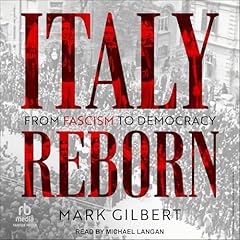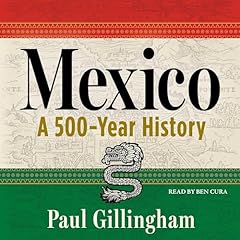
Blood and Power
The Rise and Fall of Italian Fascism
No se pudo agregar al carrito
Add to Cart failed.
Error al Agregar a Lista de Deseos.
Error al eliminar de la lista de deseos.
Error al añadir a tu biblioteca
Error al seguir el podcast
Error al dejar de seguir el podcast
 Exclusivo para miembros Prime: ¿Nuevo en Audible? Obtén 2 audiolibros gratis con tu prueba.
Exclusivo para miembros Prime: ¿Nuevo en Audible? Obtén 2 audiolibros gratis con tu prueba.Compra ahora por $22.22
-
Narrado por:
-
Daniel Philpott
-
De:
-
John Foot
Bloomsbury presents Blood and Power by John Foot, read by Daniel Philpott.
'Clear, cool, plainly written and devastating’ Lucy Hughes-Hallett, Times Literary Supplement
A major history of the rise and fall of Italian fascism: a dark tale of violence, ideals and a country at war.
In the aftermath of the First World War, the seeds of fascism were sown in Italy. While the country reeled in shock, a new movement emerged from the chaos: one that preached hatred for politicians and love for the fatherland; one that promised to build a ‘New Roman Empire’, and make Italy a great power once again.
Wearing black shirts and wielding guns, knives and truncheons, the proponents of fascism embraced a climate of violence and rampant masculinity. Led by Benito Mussolini, they would systematically destroy the organisations of the left, murdering and torturing anyone who got in their way.
In Blood and Power, historian John Foot draws on decades of research to chart the turbulent years between 1915 and 1945, and beyond. Drawing widely from accounts of people across the political spectrum – fascists, anti-fascists, communists, anarchists, victims, perpetrators and bystanders – he tells the story of fascism and its legacy, which still, disturbingly, reverberates to this day.
Los oyentes también disfrutaron:




















Las personas que vieron esto también vieron:
















The frustrating part is that while we get a lot of details on theater bombings, failed assassins who tried for Il Duce, and the March on Rome, I find other key questions and issues unexplored. Like why did Mussolini lead it (from afar of course) and not Italo Balbo? Or Gabriele D'Annunzio? Both get time and space in the book but I'm not at all clear on why Mussolini became the leader of the movement (maybe because he had the newspaper?). Similarly, it seems an all too quick slide from the fascist racial laws in 1938 to suddenly its 1943 and the Fascist Grand Council is voting Mussolini out of power. 'Blood and Power's pace is a bit uneven, as is sometimes the scope.
Copious detail is given to Mussolini's execution, and to the aftermath. But that begins to make sense as Foot points out just how little reckoning Italy did with its fascist past for so long. As in many other places, it was easier to bury the past and rewrite (or entirely omit) history than undergo the painful cleansing and see justice done.
I did enjoy the book and it answered many questions, but I'm looking for other materials to fill in the gaps.
Good Answers but Generates More Questions
Se ha producido un error. Vuelve a intentarlo dentro de unos minutos.
Entertaining but superficial
Se ha producido un error. Vuelve a intentarlo dentro de unos minutos.


